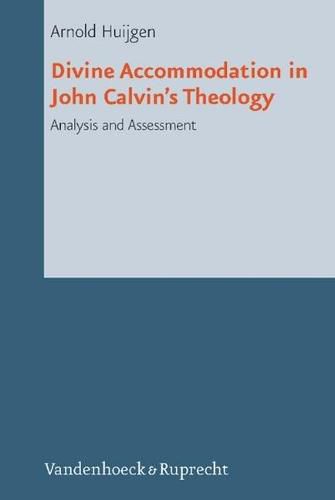Readings Newsletter
Become a Readings Member to make your shopping experience even easier.
Sign in or sign up for free!
You’re not far away from qualifying for FREE standard shipping within Australia
You’ve qualified for FREE standard shipping within Australia
The cart is loading…






Arnold Huijgen analyses und assesses the idea of divine accommodation in John Calvins theology. He proves that Calvins idea of accommodation was terminologically influenced by Erasmus, while its content originated in patristic theology. Though Calvins idea of accommodation is multifaceted, Huijgen subsumes and analyzes it in the light of the two main perspectives of pedagogy and revelation. The pedagogical aspect relates to Calvins understanding of salvation history, and the relation between the Old and the New Testament. In this perspective Christ as the mediator holds a central position. The aspect of revelation focuses on Calvins comprehension of Gods nature which for him is behind Gods revelation. Calvins understanding of accommodation implies a distinct dynamic to revelation, which is disrupted by its static, hierarchical ontology. Huijgen points out the weaknesses of Calvins idea of accommodation on the basis of modern critiques by Karl Barth, Isaak August Dorner, and Harry M. Kuitert; he also explores the viable points for present day theology.
$9.00 standard shipping within Australia
FREE standard shipping within Australia for orders over $100.00
Express & International shipping calculated at checkout
Arnold Huijgen analyses und assesses the idea of divine accommodation in John Calvins theology. He proves that Calvins idea of accommodation was terminologically influenced by Erasmus, while its content originated in patristic theology. Though Calvins idea of accommodation is multifaceted, Huijgen subsumes and analyzes it in the light of the two main perspectives of pedagogy and revelation. The pedagogical aspect relates to Calvins understanding of salvation history, and the relation between the Old and the New Testament. In this perspective Christ as the mediator holds a central position. The aspect of revelation focuses on Calvins comprehension of Gods nature which for him is behind Gods revelation. Calvins understanding of accommodation implies a distinct dynamic to revelation, which is disrupted by its static, hierarchical ontology. Huijgen points out the weaknesses of Calvins idea of accommodation on the basis of modern critiques by Karl Barth, Isaak August Dorner, and Harry M. Kuitert; he also explores the viable points for present day theology.